Heat pumps are a highly efficient and cost-effective way to heat and cool your home. They work by transferring heat from the air or ground outside to the inside of your home, and vice versa. By using a heat pump, you can save up to 50% on your energy bills compared to traditional heating and cooling systems.
How To Use A Heat Pump Efficiently
Heat pumps are a highly efficient and cost-effective way to heat and cool your home, but it’s important to use them efficiently to get the most out of your investment. Some simple tips to help you do this include using a programmable thermostat to set the temperature in your home, insulating your home properly, and keeping your heat pump well-maintained.
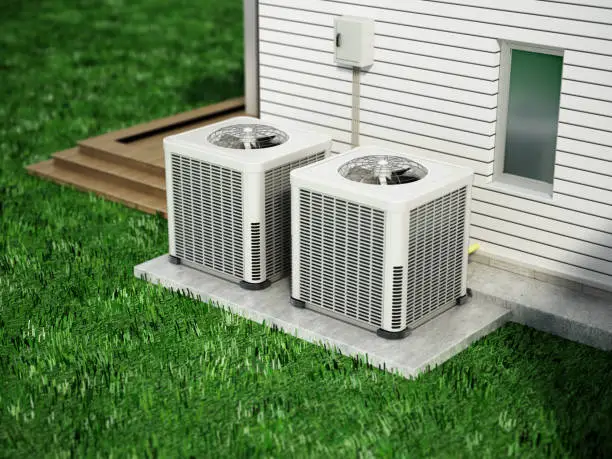
Additionally, consider the type of heat pump that’s best for your needs and the climate you live in, and take advantage of any tax credits or incentives that may be available.
What can cause higher heat pump running costs?
factors such as the type of heat pump, the size of the unit, and the level of maintenance can significantly impact the efficiency of the heat pump, which can lead to higher running costs. The type of heat pump used is a critical factor as some units may not be suitable for specific climates or may have a lower efficiency rating.
For example, air source heat pumps may not perform as efficiently in areas with colder temperatures, and geothermal heat pumps may not be cost-effective for smaller homes.
Additionally, the size of the heat pump must be appropriate for the size of the space being heated or cooled; an oversized unit may result in unnecessary expenses due to increased energy consumption, while an undersized unit may struggle to maintain the desired temperature and lead to higher running costs.
The level of maintenance is also a crucial factor in heat pump efficiency. Regular maintenance, including cleaning or replacing filters and checking refrigerant levels, is necessary to ensure the heat pump operates at its highest efficiency.
Heat pump temperature efficiency chart
| Outdoor Temperature (°C) | COP (Coefficient of Performance) | Electricity Consumption (kW) |
|---|---|---|
| 20 | 4.0 | 2.5 |
| 10 | 3.5 | 2.9 |
| 0 | 3.0 | 3.3 |
| -5 | 2.7 | 3.7 |
| -10 | 2.4 | 4.2 |
| -15 | 2.1 | 4.8 |
| -20 | 1.8 | 5.6 |
The table shows the relationship between the outdoor temperature, the COP of a heat pump, and the electricity consumption in kW. The electricity consumption is calculated based on a heat pump with a heating capacity of 10 kW. As the outdoor temperature decreases, the COP decreases and the electricity consumption increases, indicating that the heat pump becomes less efficient and requires more energy to maintain the desired temperature in the home.
Tips for efficient heat pump use
To get the most out of your heat pump, it’s important to use it efficiently. Here are a few tips to help you do just that:
Make sure your heat pump is properly sized for your home
If your heat pump is too small, it will have to work harder to heat and cool your home, which can lead to higher energy costs and reduced lifespan. On the other hand, if it’s too large, it will cycle on and off too frequently, also leading to higher energy costs and reduced efficiency.
Keep your heat pump well-maintained
Regular maintenance is crucial for ensuring your heat pump is running at its best. This includes cleaning or replacing the filters, checking and tightening any loose connections, and inspecting the refrigerant levels.
Use the thermostat wisely
Programmable thermostats are a great way to help you use your heat pump efficiently. You can set the thermostat to a lower temperature when you’re away from home or asleep, and then raise the temperature one hour before you wake up or return home. This way, you’re not heating or cooling an empty house, which can save you money on energy costs.
Insulate your home properly
A well-insulated home will help your heat pump work more efficiently. Make sure you have proper insulation in your walls, attic, and basement to keep the heat in during the winter and out during the summer.
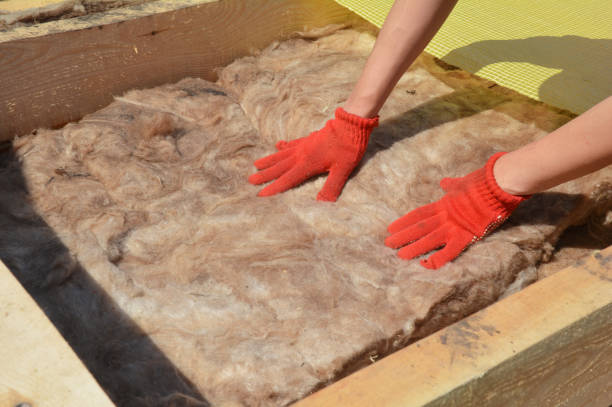
Consider the installation location
The location of your heat pump can have a big impact on its efficiency. It’s best to install the heat pump in a shaded area to help it stay cool, as a cooler heat pump will be more efficient. Additionally, make sure the unit has plenty of airflow around it to help it operate more efficiently.
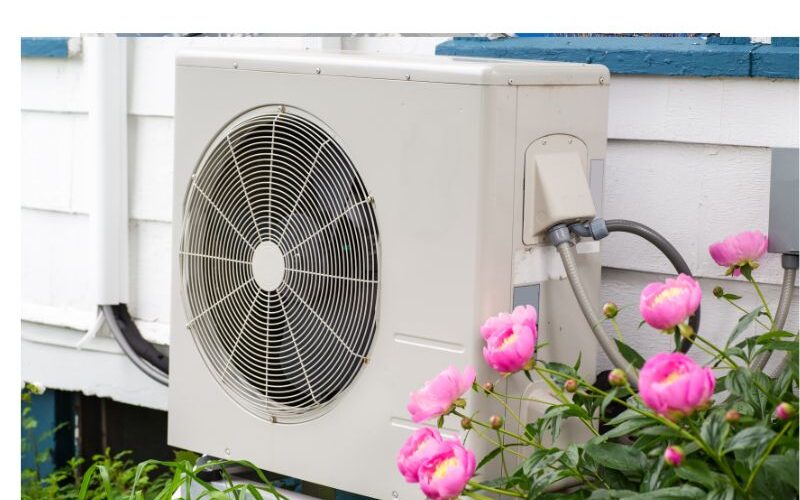
Set it and forget it in the winter
Using a programmable thermostat, you can set the temperature in your home to a comfortable level and leave it there throughout the winter. This way, you don’t have to constantly adjust the temperature manually, which can save energy and reduce wear and tear on the heat pump.
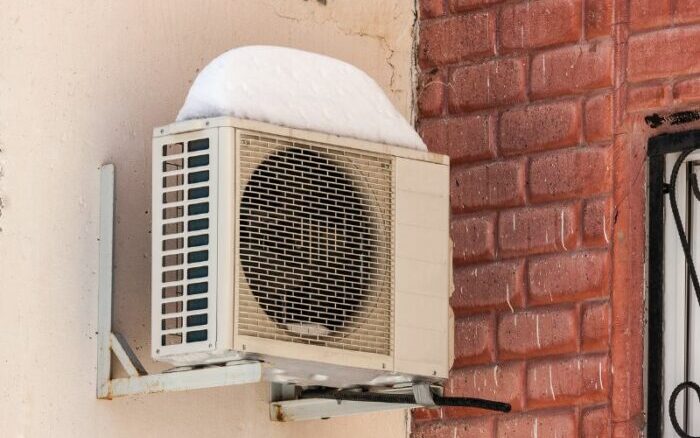
Use your heat pump before your boiler
If you have a dual-fuel system that includes both a heat pump and a boiler, it’s generally more efficient to use the heat pump first. The heat pump can usually handle the majority of your heating needs, and the boiler or furnace can be used as a backup when it’s especially cold outside.
Avoid “Auto” mode in summer and winter
In general, it’s a good idea to avoid using the “Auto” mode on your thermostat, as it can cause the heat pump to cycle on and off too frequently, which can reduce efficiency. Instead, try using the “Heat” or “Cool” mode depending on the season.
Optimise fan speed
Your heat pump may have different fan speeds to choose from. In general, it’s a good idea to use the lowest fan speed that still provides adequate airflow and comfort. Higher fan speeds can increase energy consumption.
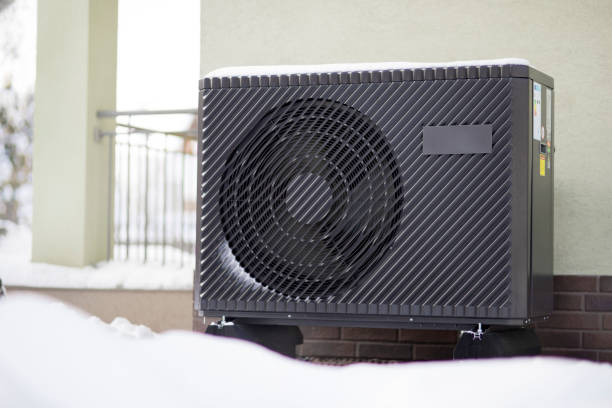
Optimise air flow direction
Many heat pumps have adjustable air flow direction to help distribute the heated or cooled air more evenly throughout your home. Be sure to adjust the air flow direction as needed to ensure that the air is being distributed effectively.
Clean your dust filters
Regularly cleaning or replacing the dust filters in your heat pump can help improve its efficiency and extend its lifespan. Be sure to follow the manufacturer’s recommendations for how often to clean or replace the filters.
Keep your outdoor unit clear
Make sure the outdoor unit of your heat pump has plenty of airflow around it by keeping it clear of debris, such as leaves and twigs.
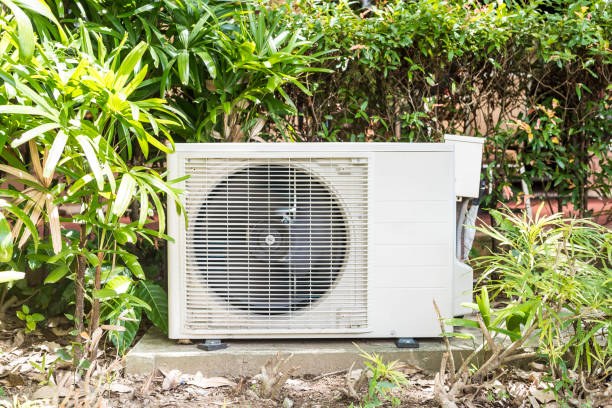
Have your heat pump professionally serviced
Regular professional maintenance is crucial for ensuring your heat pump is running at its best. This can include cleaning or replacing the filters, checking and tightening any loose connections, and inspecting the refrigerant levels.
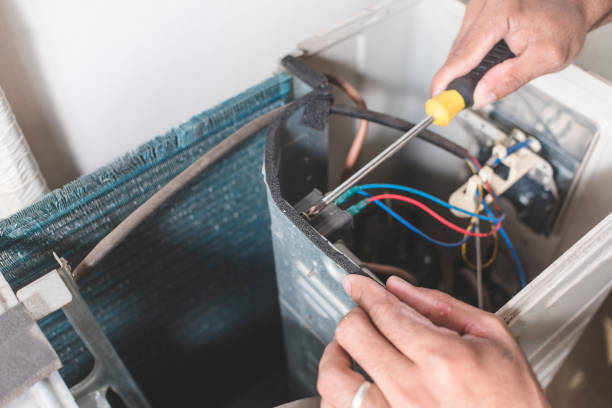
Match the summer mode to the weather and your needs
In the summer, you can adjust the settings on your heat pump to match the weather and your comfort level. For example, if it’s very hot outside, you may want to set the temperature a little lower to help keep your home cool. On the other hand, if it’s not as hot, you may be able to set the temperature a little higher and still be comfortable.
By following these tips, you can ensure that your heat pump is running as efficiently as possible and save money on your energy bills. Additionally, if you’re considering purchasing a heat pump, be sure to shop around and compare prices and reviews from different manufacturers to get the best deal.
Should I leave my heat pump on all the time?
One common question that homeowners have when it comes to using their heat pump is whether they should leave it on all the time or turn it off when not needed. The answer to this question can have a significant impact on the efficiency of the heat pump and the associated running costs.
In general, it is more efficient to leave the heat pump on all the time, rather than turning it on and off as needed. This is because the heat pump is designed to operate most efficiently when it is running continuously, rather than cycling on and off throughout the day.
When a heat pump is turned off and then turned back on again, it must work harder to reach the desired temperature, which can result in higher energy consumption and increased running costs. Also, the constant starting and stopping can place additional stress on the unit, which can lead to maintenance issues and a shorter lifespan for the heat pump.
By leaving the heat pump on all the time, homeowners can ensure that the unit operates at maximum efficiency and reduces the risk of unnecessary expenses associated with frequent cycling. However, the temperature settings should be adjusted accordingly to avoid excessive energy consumption during periods of low usage.
Should a heat pump run constantly in winter?
While it is generally more efficient to leave a heat pump running all the time, it is not necessary for the unit to run constantly during the winter months. In fact, a heat pump that runs constantly during extremely cold weather may struggle to maintain the desired temperature, leading to increased energy consumption and higher running costs.
It is important to adjust the temperature settings on the heat pump to match the outdoor temperature and the heating needs of the home.
In most cases, a heat pump will cycle on and off throughout the day to maintain the desired temperature. This is a normal operation and does not indicate any issues with the efficiency of the heat pump.
Homeowners can help to ensure that the heat pump operates at maximum efficiency during the winter months by regularly cleaning or replacing air filters, scheduling regular maintenance with a professional technician, and adjusting the temperature settings accordingly.
*The information in this article should be used for general guidance only and not as financial or health advice. Full details are on the link in the footer to our disclaimer page. Always discuss your requirements with a competent and suitably qualified professional before undertaking any work.
